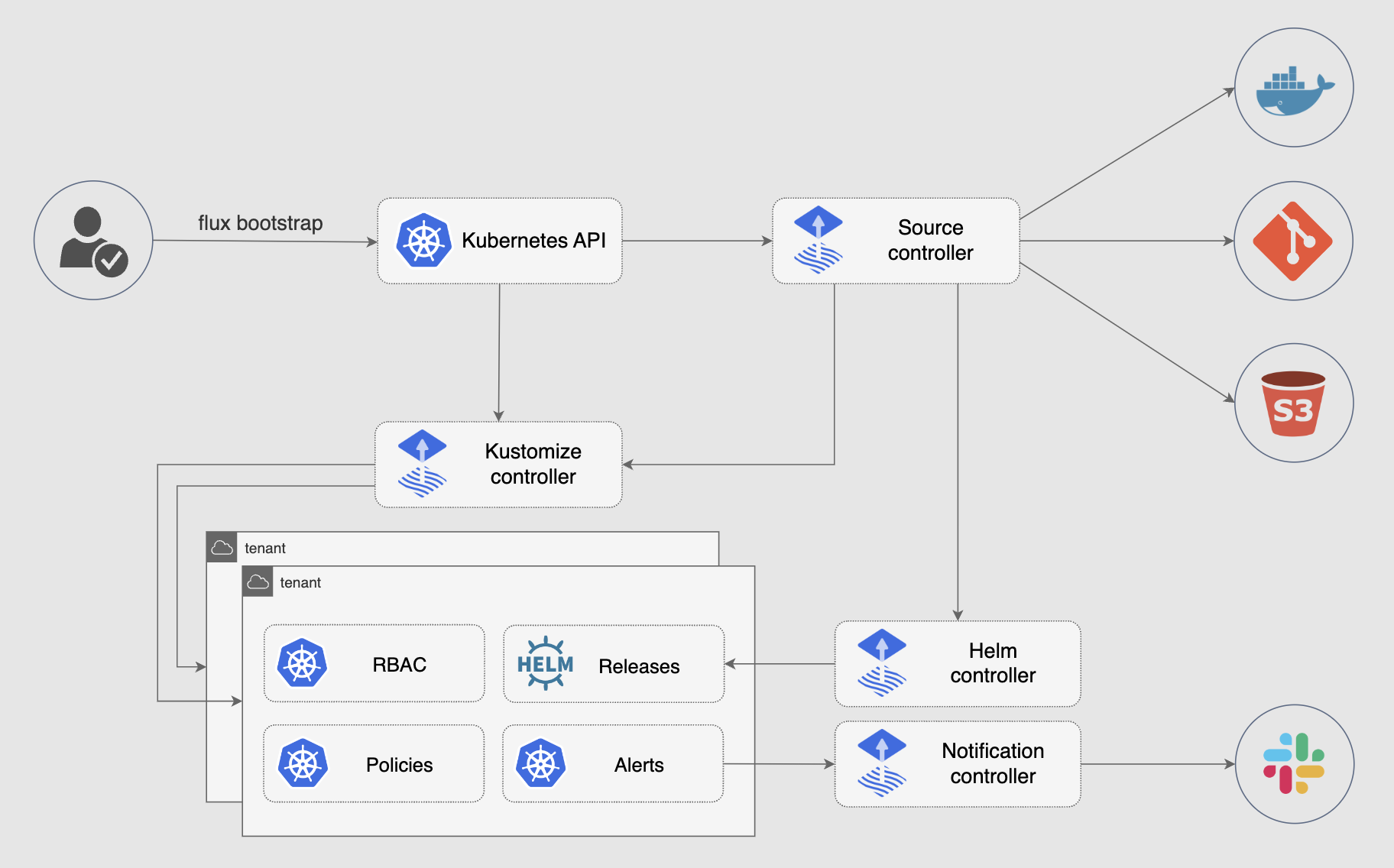Flux FluxCD
winget install --id=FluxCD.Flux -e A command line tool for communicating with FluxCD
Flux is a command line tool designed to communicate with FluxCD, enabling efficient management of Kubernetes clusters through synchronization with Git repositories and other configuration sources. It leverages the GitOps Toolkit to provide an extensible and efficient way to manage Kubernetes clusters.
Key Features:
- Integration with the GitOps Toolkit for composable APIs and tools.
- Support for syncing multiple Git repositories, enhancing multi-tenancy capabilities.
- Automation of Helm releases and container image updates.
- Seamless integration with Prometheus for monitoring and alerting.
- Installation via winget for ease of setup.
Audience & Benefit:
Ideal for Kubernetes operators and DevOps teams seeking to streamline continuous delivery processes. Flux enhances efficiency by automating deployment updates, ensuring cluster configurations remain in sync with source repositories, and supporting scalable operations across multiple environments. This tool helps maintain reliability and extensibility, aligning with best practices in Kubernetes management.
README
Flux version 2
Flux is a tool for keeping Kubernetes clusters in sync with sources of configuration (like Git repositories and OCI artifacts), and automating updates to configuration when there is new code to deploy.
Flux version 2 ("v2") is built from the ground up to use Kubernetes' API extension system, and to integrate with Prometheus and other core components of the Kubernetes ecosystem. In version 2, Flux supports multi-tenancy and support for syncing an arbitrary number of Git repositories, among other long-requested features.
Flux v2 is constructed with the GitOps Toolkit, a set of composable APIs and specialized tools for building Continuous Delivery on top of Kubernetes.
Flux is a Cloud Native Computing Foundation (CNCF) graduated project, used in production by various organisations and cloud providers.
Quickstart and documentation
To get started check out this guide on how to bootstrap Flux on Kubernetes and deploy a sample application in a GitOps manner.
For more comprehensive documentation, see the following guides:
- Ways of structuring your repositories
- Manage Helm Releases
- Automate image updates to Git
- Manage Kubernetes secrets with Flux and SOPS
If you need help, please refer to our .



